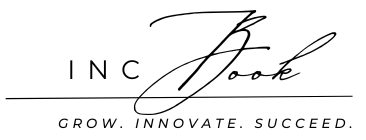Navigating the business financing landscape in Michigan can be a daunting task, especially for small business owners. With various options available, it’s crucial to understand what’s out there to fuel your business dreams. Whether you’re looking to launch a startup, expand an existing venture, or manage day-to-day expenses, Michigan offers a range of loan options tailored to meet your needs. This guide breaks down different financing choices, detailing interest rates, amounts, and what to keep in mind, all while keeping it light and easy to digest. So, let’s dive in and find the perfect funding solution for your Michigan-based business!
| Loan Type | Interest Rates | Loan Amounts | Pros | Cons |
|---|---|---|---|---|
| Small Business Administration (SBA) Loans | 6% – 10% | $5,000 – $5 million | – Low interest rates – Long repayment terms – Flexible use of funds |
– Lengthy application process – Strict eligibility requirements |
| Traditional Bank Loans | 4% – 12% | $10,000 – $500,000 | – Established credibility – Potential for lower rates |
– Rigid application process – Requires strong credit history |
| Online Business Loans | 7% – 25% | $5,000 – $500,000 | – Fast approval times – Minimal paperwork |
– Higher interest rates – Shorter repayment terms |
| Credit Union Loans | 5% – 15% | $1,000 – $250,000 | – Member-focused service – Competitive rates |
– Limited availability – Membership requirements |
| Business Lines of Credit | 8% – 24% | $10,000 – $500,000 | – Flexibility to borrow as needed – Only pay interest on drawn amounts |
– Variable interest rates – May have annual fees |
| Merchant Cash Advances | 20% – 40% | $5,000 – $250,000 | – Quick access to cash – No collateral needed |
– High costs – Daily repayments can strain cash flow |
| Equipment Financing | 6% – 12% | $5,000 – $1 million | – Secured by the equipment itself – Can improve cash flow |
– Equipment must be essential – Limited to equipment purchases |
| Invoice Financing | 1% – 5% per month | $1,000 – $500,000 | – Quick access to funds based on invoices – Improves cash flow |
– Fees can accumulate – Depends on customer payment reliability |
| Personal Loans for Business | 5% – 36% | $1,000 – $50,000 | – Easier qualification – Fast access to funds |
– Personal liability – Can impact personal credit score |
| Microloans | 8% – 18% | $500 – $50,000 | – Great for startups – Often more flexible terms |
– Smaller amounts available – Higher rates compared to traditional banks |
Insider Tips
Stay Persistent and Adaptable 💪
Be prepared to adapt your approach based on feedback and changing market conditions.
Understand Your Business Needs 💼
Identify your specific financing needs before seeking loans or funding.
Research Local Lenders 🏦
Explore community banks and credit unions in Michigan that understand local markets.
Utilize the MEDC Resources 📈
Leverage the Michigan Economic Development Corporation’s programs for funding and support.
Prepare a Solid Business Plan 📝
Develop a detailed business plan to present to potential lenders.
Improve Your Credit Score 📊
Regularly monitor and improve your credit score to qualify for better loan terms.
Explore SBA Loan Programs 🤝
Look into Small Business Administration loans for favorable terms and rates.
Consider Microloans 💰
Research microloan options available for startups and small businesses.
Attend Local Business Workshops 🎓
Participate in workshops offered by local organizations to gain insights and resources.
Network with Other Entrepreneurs 🌐
Build relationships with fellow business owners for support and advice.
Explore Grant Opportunities 🏆
Investigate available grants through the MEDC and other local organizations.
Utilize Financial Management Software 💻
Implement software to help manage your finances and prepare for loan applications.
Engage with Local Chambers of Commerce 🏢
Join local chambers for networking and business resources.
Consider Crowdfunding Options 💸
Explore crowdfunding platforms as an alternative financing method.
Be Transparent with Lenders 🔍
Share your financial history honestly to build trust with lenders.
Know Your Industry’s Trends 📈
Stay informed about trends in your industry to align your business strategy.
Leverage Personal Assets Carefully 🏡
If necessary, consider using personal assets as collateral but understand the risks.
Understand Loan Terms Thoroughly 📜
Read the fine print of loan agreements to understand terms and conditions.
Monitor State Economic Initiatives 🌟
Keep an eye on new state programs that may provide funding opportunities.
Prepare for Due Diligence ✅
Gather all necessary documentation ahead of time to streamline the application process.
Identify Industry-Specific Lenders 🚀
Look for lenders that specialize in financing your industry for tailored solutions.
Develop a Strong Value Proposition 💡
Clearly communicate what makes your business unique to attract lenders.
Assess Your Cash Flow Regularly 📉
Monitor cash flow to better manage expenses and repayment schedules.
Highlight Community Impact ❤️
Emphasize how your business positively affects the local community.
Consider Seasonal Financing 🌦️
Plan for seasonal fluctuations in cash flow and explore financing options accordingly.
Utilize Professional Advisors 🧑🏫
Seek advice from accountants or financial advisors for guidance on financing options.
Engage with the Michigan SBDC 🤗
Take advantage of free consulting services from the Michigan Small Business Development Center.
Look for Long-Term Financing Solutions ⏳
Consider long-term loans for significant investments rather than short-term fixes.
Prepare for Interest Rate Changes 📈
Stay informed about interest rates and their potential impact on your loan.
Cultivate a Good Relationship with Your Lender 🤝
Maintain open communication and build a strong relationship with your financial institution.



